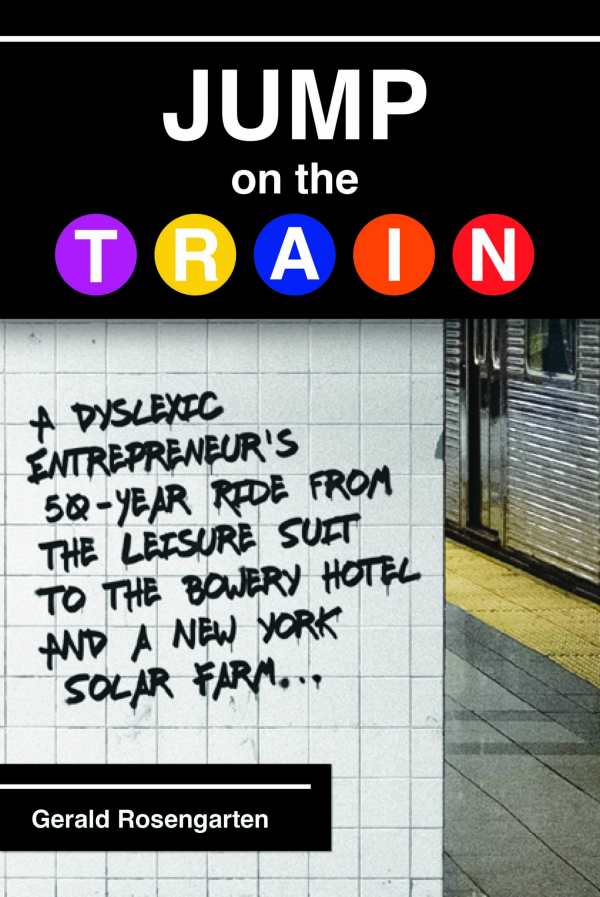Jump on the Train
A Dyslexic Entrepreneur's 50-Year Ride from the Leisure Suit to the Bowery Hotel and a New York Solar Farm
About a career marked by the willingness to be daring and work hard, Jump on the Train is an inspiring entrepreneur’s memoir.
Real estate development innovator Gerald Rosengarten’s memoir Jump on the Train highlights a multitude of projects from his fifty-year career. It details the struggles, conflicts, and legal battles involved in those endeavors, as well as successes that shaped New York City and beyond.
In the course of his career, Rosengarten hopped on projects that looked or felt good without always knowing why or where they would lead. Indeed, these projects didn’t always work out well. There were lawsuits, failures, and fights. But Rosengarten was also a part of important developments in the city; he was one of the first developers of legal loft apartments and anticipated the redevelopment and resurgence of the Bowery. And the city changed around him as the years went on, progressing from a time of high crime and dilapidated buildings to an era exemplified by luxury projects, though also moving toward sustainable options. Rosengarten also engaged in philanthropy, supporting and publicizing a technique that makes reading easier for dyslexic people—a project with personal resonance, as Rosengarten is dyslexic and was functionally unable to read until middle age.
The book is sometimes frenetic, though it follows a general chronology. It celebrates career highs, as when Rosengarten invented the leisure suit or developed a boutique medical office building with restaurants around an existing theater. He also boasts of starting a luxury hotel and a massive storage building in New Jersey and of being part owner of one of the largest solar farms on the East Coast. Values like sustainability, environmental stewardship, openness to other people’s ideas, and willingness to problem solve on the fly are touted throughout the book, with Rosengarten taking care to highlight how he brought hard work, innovation, imagination, and persistence to bear in every project he undertook.
Still, while each project is covered in detail, including via behind-the-scenes stories and insider information about the history of New York and real estate development, such explorations also lead to a disjointed text. Sufficient connections are not drawn between individual memories, and the book’s deviations from a linear presentation muddles it. Indeed, anecdotes are presented in the manner of crisscrossing subway tracks, slowing the book’s progression. They are connected somewhat by the theme of creativity, with Rosengarten using each memory to show how he tried to do work that was of value, hoping to leave a positive legacy behind him.
Jump on the Train is an entertaining memoir—an insider’s account of New York real estate from the 1980s onward.
Reviewed by
Sarah White
Disclosure: This article is not an endorsement, but a review. The publisher of this book provided free copies of the book and paid a small fee to have their book reviewed by a professional reviewer. Foreword Reviews and Clarion Reviews make no guarantee that the publisher will receive a positive review. Foreword Magazine, Inc. is disclosing this in accordance with the Federal Trade Commission’s 16 CFR, Part 255.

